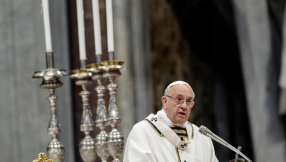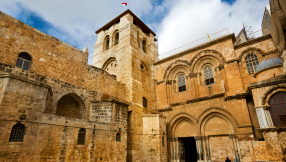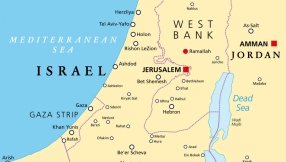Reformed Theologians Tell Churches: Resist The Global Empire
|TOP|The theologians said global empire is a critical theological and political issue and they urged a broad debate among theologians and religious people. They drew on the stubborn resistance to empire of both the Hebrew prophets and the Galilean Jesus in their critique.
The statement read: “This new reality has economic, political, social, cultural, religious and spiritual dimensions. It presents life and death challenges for Christians, as the empire uses religion to justify its domination and violence and makes claims that belong to God alone.”
The Manila Declaration originated in the call of the 24th General Council of the World Alliance of Reformed Churches (WARC) at Accra, Ghana, in 2004, which called for faith-based resistance to the global empire.
It is the result of an international consultation titled “Theological Analysis and Action on Global Empire Today” which took place in Manila, Philippines, 13 to 15 July and was organised by WARC’s Covenanting for Justice Project.
The statement calls on the 218 member churches of the World Alliance of Reformed Churches (WARC) to resist empire and to build peaceful communities.
It also urges the wider ecumenical movement to join in the process of analysing their relationship with empire and resisting it.
|AD|“We ask all churches whose missions and peoples have historically been involved in empire building to seriously scrutinise - in partnership with the victims of their imperial past - their structure, teaching, liturgy, funding agencies and policies as well as their political allegiances, in order to repent and reshape their life in all aspects in the spirit of the anti-imperial biblical heritage.”
The statement says that there are two key aspects to global empire today: neoliberal capitalistic globalisation and global militarisation.
“These are interrelated, as economic domination and military rule are inextricably joined. The military forces of the empire act as the ‘global cop’ to maintain order and security of the global market.”
The Manila Declaration states that the nature of the global empire is evident in the wars in Iraq and Afghanistan, martial law in the Philippines, economic punishment of countries such as North Korea and Cuba as well as in the repressive measures associated with the “war on terror”.
It also revealed that the global empire is interwoven with patriarchy that oppresses women, the lust for oil and other natural resources that result in the destruction of the ecology, the violation of human rights, poor working conditions, the insatiable quest for profits and privatisation.
“The most outstanding sign of our times is the suffering and cries of human persons and other living beings throughout the world, as their victimisation proceeds in a systematic and unprecedented manner,” the declarations says.
It continued: “At the beginning of the 21st century, all living beings in the cosmos are threatened with death and destruction. Their groaning echoes throughout the universe and is joined by the Spirit’s groaning. As expressed in (Paul’s letter to the) Romans 8.18-39, the powers and principalities of this world - with a comprehensive destructiveness in the form of the global empire - are causing creation to groan, in bondage, waiting for its liberation.”
Explicitly the Manila Declaration rejects:
- claims to unlimited national sovereignty, violation of international law and unbridled unilaterialism;
- the building of a political empire in the name of Christ;
- the empire’s use of biblical and theological language to justify war.
However the declaration takes some hope from the growing number of peace and justice movements around the world that are rooted in the suffering of people, including those in Latin America, the Philippines, Nepal, South Korea, Japan and the United States.
“We affirm another world is possible! This enables us to search for a collective vision of a community of life in justice and peace. The peace of Jesus is not the peace of empire. A new ecumenical vision for a community of life in justice and peace is being born in our day.”
The World Alliance of Reformed Churches (WARC) brings together 75 million Reformed Christians in 218 churches in 107 countries - united in their commitment to making a difference in a troubled world.













